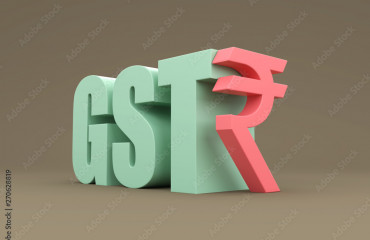
New Delhi: India can maintain a consistent 8-9% GDP growth in the coming years, and even reach double-digit annual growth between FY29 and FY31 fuelled by government spending on infrastructure, and private investment, which is expected to increase significantly in the coming years, industry body Confederation of Indian Industry's (CII) President R Dinesh said.
New Delhi: India can maintain a consistent 8-9% GDP growth in the coming years, and even reach double-digit annual growth between FY29 and FY31 fuelled by government spending on infrastructure, and private investment, which is expected to increase significantly in the coming years, industry body Confederation of Indian Industry's (CII) President R Dinesh said.
Big-ticket land and labour reforms, as well as higher spending on health and education, apart from keeping its focus on inclusive growth in the medium to long term will also propel India as one of the fastest-growing major economies, registering a consistent high growth, Dinesh said in an interview.
"We believe that the economy will register over 7.5% growth in FY25. There is significant optimism if you look at the CII's Business Confidence Index survey," he said.
"A large number of respondents have said that they see growth in H1, FY25, much higher than H2 of FY 24. Also, I think the focus on infrastructure, both physical and digital, has made India more competitive and reduced the cost of doing business here," he added.
India is the fastest-growing major economy in the world.
During the December quarter (October-December 2023), the Indian economy registered a surprise growth of 8.4%, as manufacturing, electricity and construction put up a robust show.
The high growth in the third quarter (Q3, FY24) has also meant a revision in the estimate for GDP growth in FY24 by the National Statistical Office, from 7.3% in its first advance forecast to 7.6% in its recent second revised estimate.
The Reserve Bank of India's (RBI) economic growth estimate for FY24 and FY25 is 7%.
However, despite reporting high growth, the Indian economy faces challenges in the form of low rural consumption, with spending in rural India remaining tepid due to inflation, poor rains and subdued growth in wages.
Meanwhile, private investment has picked up only in certain sectors and are yet to fire up in a big way across all major sectors of the economy.
Dinesh, however, expects private investment to pick up significantly in coming years, fuelled by government capex and infrastructure spending, with businesses becoming more cost-competitive, thus attracting more investments into the economy.
Businesses are looking at opportunities, not just for domestic demand, but also on the export front in sectors like automotive and auto components, electronics, and renewable energy, among others, Dinesh said.
On rural consumption, Dinesh said while the consumption pattern of the rural population has changed, the aspirations of Indians have also shifted with more people joining the workforce after completing education.
"It's not that rural India is not spending money, but their aspirations have changed, and they are spending money on things like education, transport, mobility, etc.," he added.
Dinesh said as the Indian economy grows, jobs will be created, and the livelihoods and incomes of Indians will rise.
"The real ultimate focus has got to be on growth and inclusivity. And there has to be spending on education and health," he added.
Dinesh said four sectors have significant opportunities for growth domestically -- logistics and supply chain, tourism, hospitality and health care.
"These are a few sectors where Indians will also have mobility opportunities, meaning they can be employed in India or elsewhere," he added.
On the topic of the upcoming general elections, Dinesh said the new government will need to focus on inclusive growth, big-ticket reforms including land and labour reforms, push sectors like MSMEs, provide a thrust on education and healthcare fronts, and focus on skill development.
"The reforms with land and labour will need to be implemented by all states, making it a common India-wide initiative. How that is going to happen in my view is that we can have a GST-like council for these so that the implementation is on the ground level," he added.
Dinesh hopes the upcoming full-year budget, slated in July, will see the further rationalization of GST rates, the setting up of a green transition fund for MSMEs, and higher digital adoption and transition among the sector.
"All of it will lead to a very different level of, I would call it growth parameters and growth acceptance, into global value chains for the MSMEs and small businesses," he added
